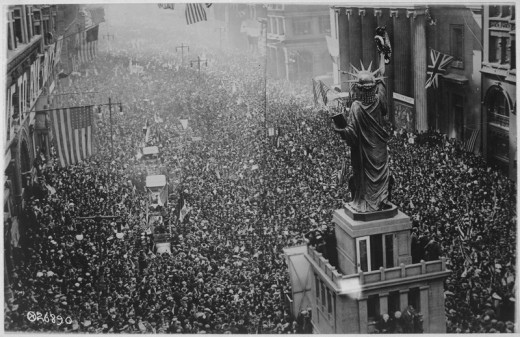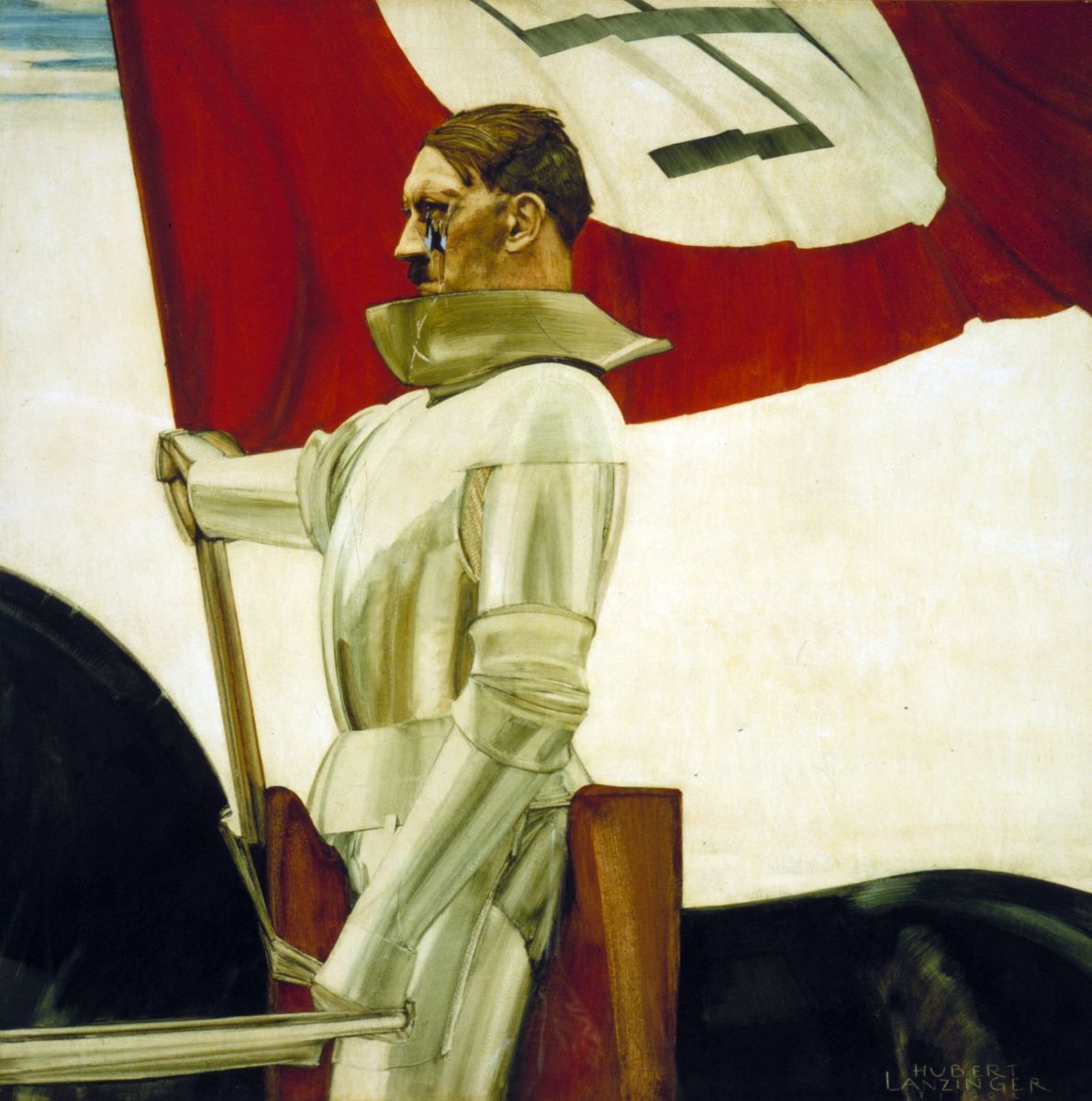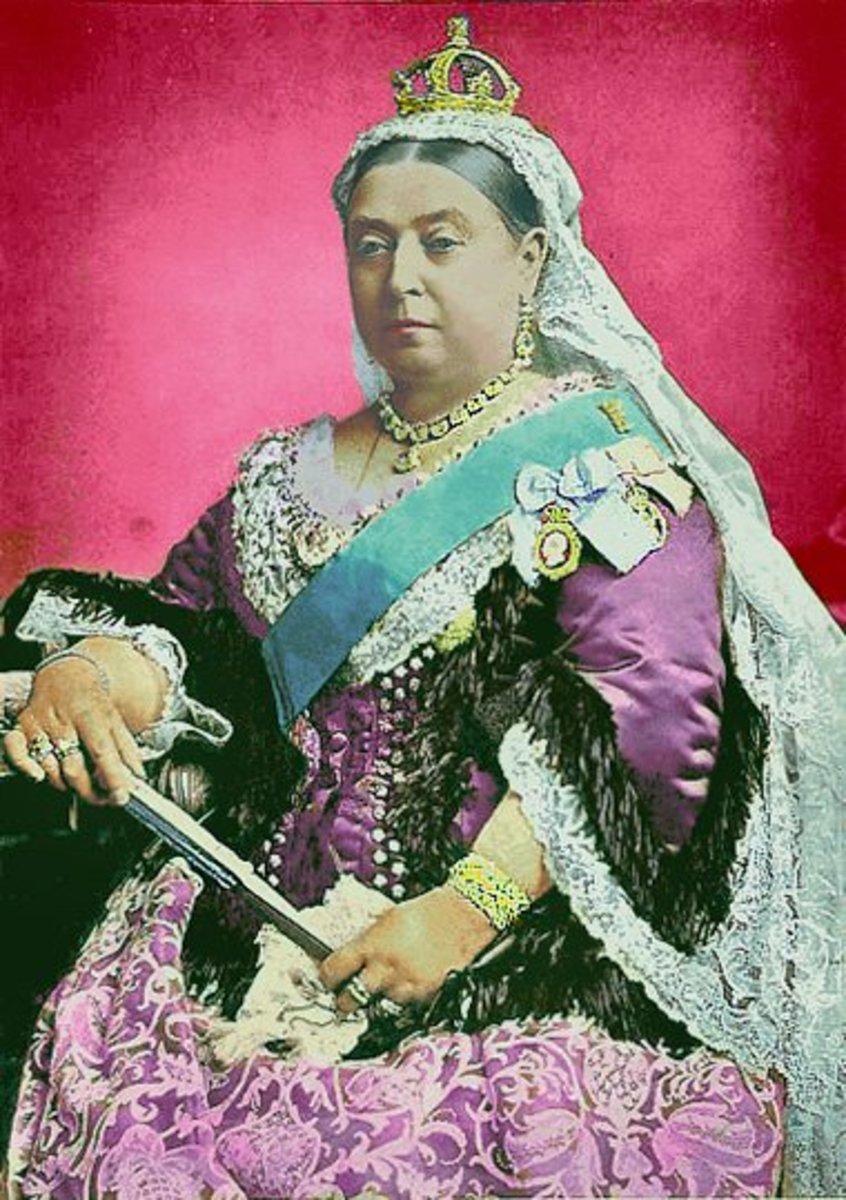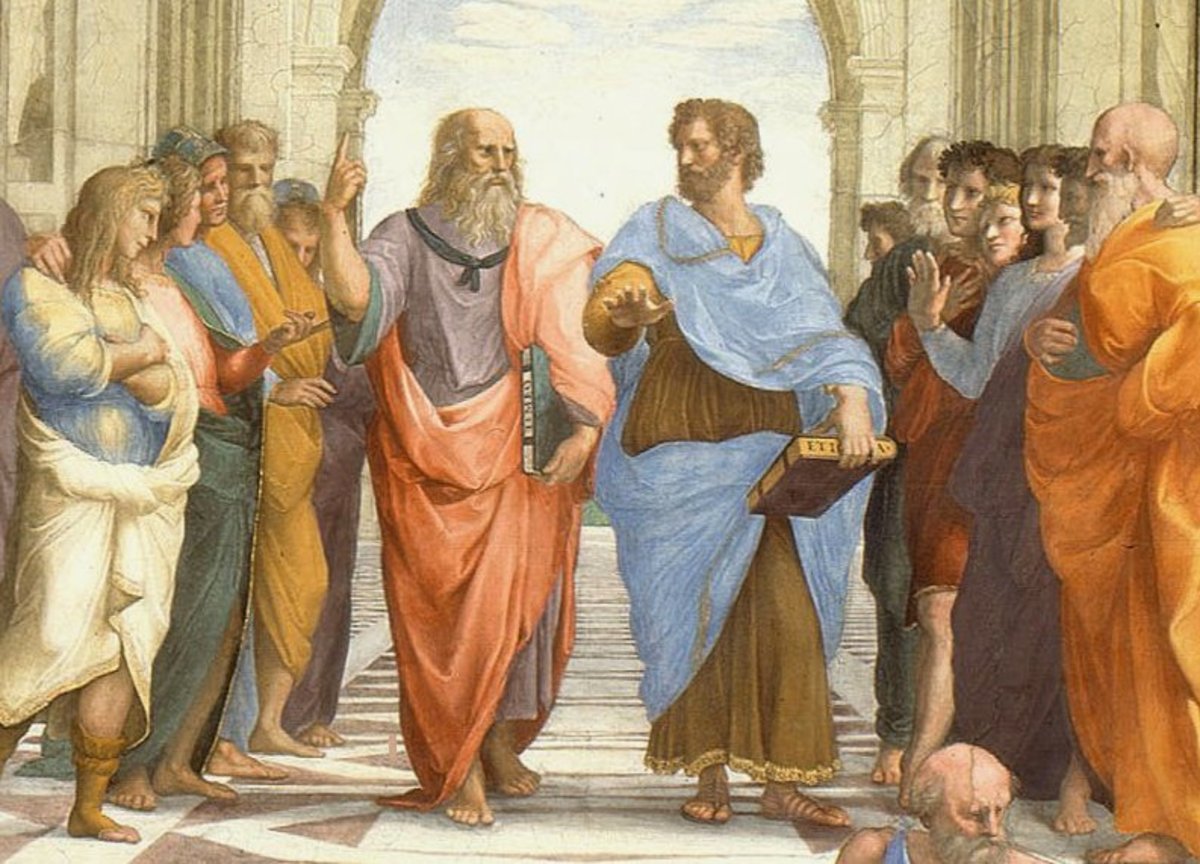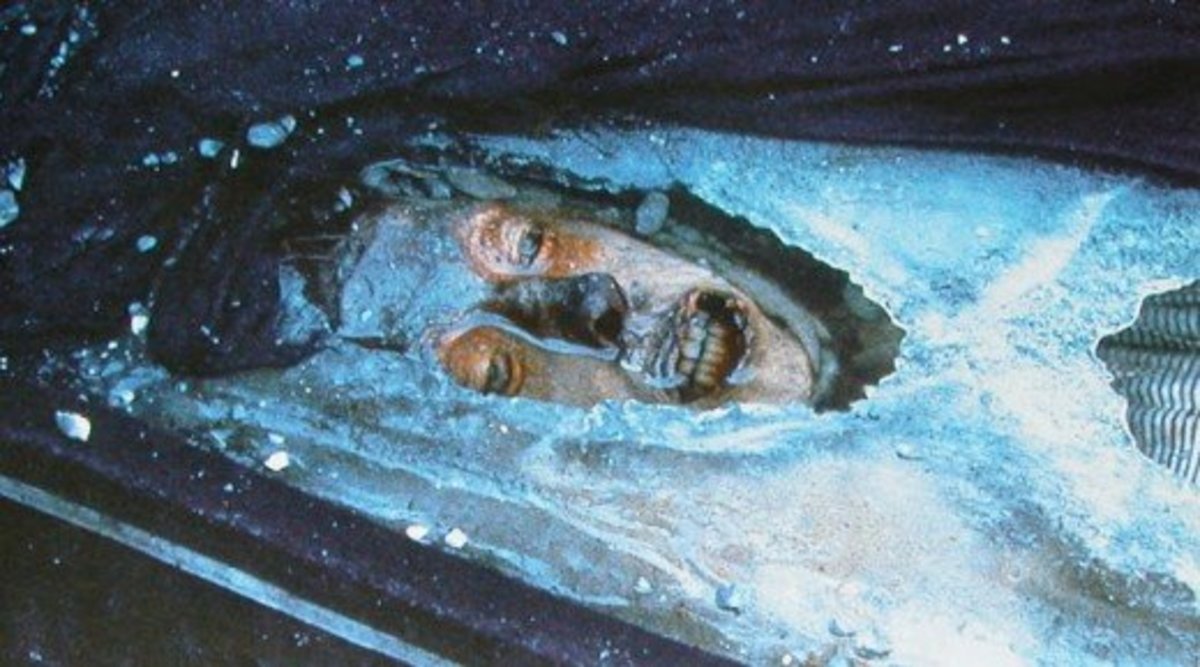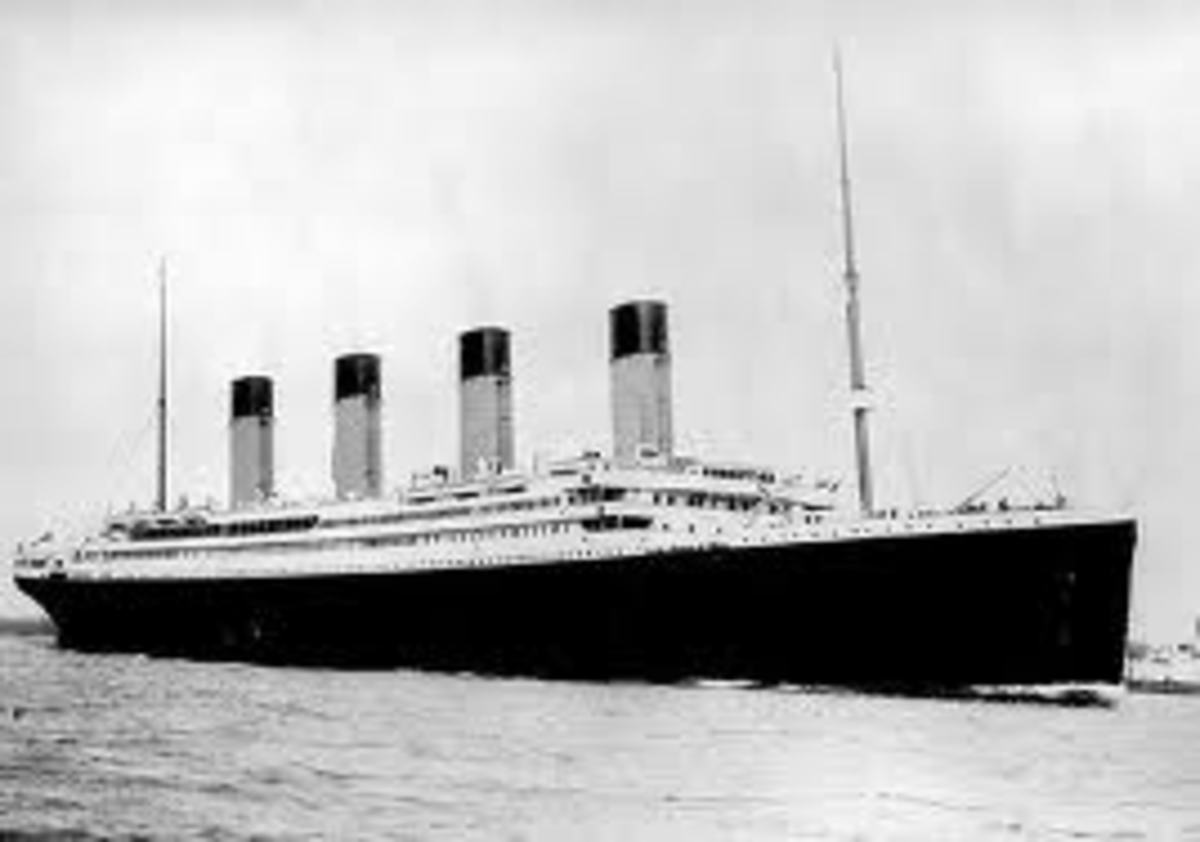WWI in a Nutshell
Gabro Princip being arrested after assassinating the Archduke
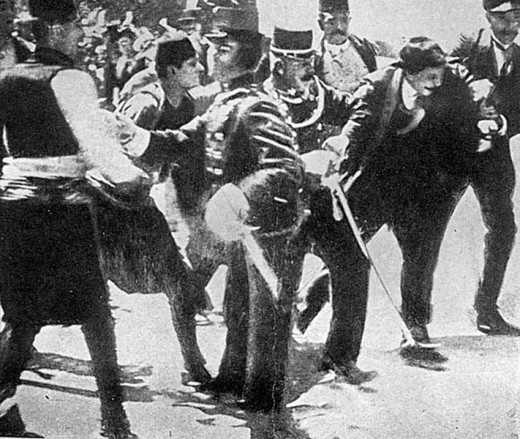
How was World War I Started?
During a visit to Sarajevo, the capital of Bosnia-Herzegovina, Archduke Francis Ferdinand of Austria-Hungary, who was heir to the throne, and his wife the duchess were assassinated on June 28th of 1914. Germany invaded Belgium on August 4th 1914, which caused Britain to declare war on Germany the same day. Britain’s colonies Australia, Canada, India, New Zealand and South Africa also backed Britain in the war. On August 24th, Japan declared war on Germany. On April 6th 1917, the United States declared war on Germany.
Intense nationalism, colonial rivalries, and a general struggle over the balance of power in Europe and the rest of the world contributed to the spread of the Great War. The establishment of the Allies and the Central Powers also caused tension in Europe. War is expensive and requires additional resources which in turn caused a race between European nations to obtain new colonies. At times, they would fight each other over dominance in one particular corner of the world or the other. Of course, nations who entered the war brought their colonies in with them.
Who were the major players?
The Triple Alliance was a secret alliance between Germany, Austria-Hungary, and Italy formed in 1882. It was periodically renewed until World War I. However, in May of 1915, Italy entered the war on the side of the Allies. The Triple Alliance became known as the Central Powers and also consisted of the Ottoman empire and Bulgaria.
The Triple Entente, also called the Allies, originally consisted of Britain, France and Russia. Later Italy and Japan joined. The United States fought as an “associated power” on the side of the Allies.
Who won and what were the peace terms?
The Central Powers sued for peace in November 1918. In January of that year, U.S. president Woodrow Wilson had written a proposal for postwar peace arrangements called the Fourteen Points. Some of the recommendations in the document were“; open agreements of peace, openly arrived at; absolute freedom of navigation upon the seas in peace and war; the removal of all economic barriers and the establishment of an equality of trade conditions among all nations; adequate guarantees for a reduction in national armaments; adjustments of colonial disputes to give equal weight to the interests of the controlling government and the colonial population; and a call for “general association of nations.” The Central Powers leaders accepted the Fourteen Points as the basis for peace negotiations and were later disappointed when the product of the Paris Peace Conference were so harsh.
In 1919, they all gathered in Paris to arrange a post war settlement. Georges Clemenceau (France), David Lloyd George (England), and Woodrow Wilson (United States), dominated the talks. Central Powers leaders were not allowed to participate and the newly formed Soviet Union was not invited either. During the negotiations, Germany remained blockaded by the British which gave Germany further reason to come to a quick agreement.
The French demanded that Germany accept sole responsibility for causing the war and a reduction in the military potential for Germany and it’s allies, Germany and Austria were never allowed to form an alliance or political union again, the members of the Central Powers were also required to pay reparations for the war. Bulgaria lost small portions of their territory, the Austro-Hungarian empire was dismantled, both Austria and Hungary lost large amounts of territory.
The Ottoman Empire required two separate treaties. The first one, the Treaty of Sevres, dissolved the empire and required Balkan and Arab territories including Anatolia to be handed over. The Turks mobilized an Army and won their independence by abolishing the sultanate and declaring themselves the Republic of Turkey. Allied powers officially recognized the republic in the Treaty of Lausanne in 1923.
Armistice announcement in Philadelphia on November 11, 1918
